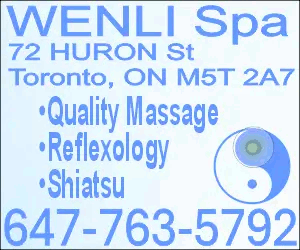SAN DIMAS >> Unlike other California cities, San Dimas hasn’t had any problems with massage parlors serving as fronts for prostitution — and the City Council wants to keep it that way.
On Tuesday night, the council unanimously approved an ordinance regulating procedures and licensing practices for massage establishments, therapists or operators who want to do business in San Dimas.
The ordinance, effective immediately, creates controls through the city’s licensing process, law-enforcement background checks and requires businesses to offer detailed descriptions of different massages, all as a way to prevent a paid massage morphing into sexual conduct.
The new city law was made possible, said Senior Planner Marco Espinoza, when the state returned local control to cities a year ago. The newer law reversed one approved in 2008 that put regulation in the hands of California Massage Therapy Council, a state-created organization that certifies massage therapists and businesses.
“The state sold us a real bill of goods when it took away local control,” Mayor Curt Morris said. “State legislators didn’t listen to people, warning their action would create huge problems and allow massage establishments to be totally out of control.”
The 2008 legislation took away local authority to conduct law enforcement background checks. If a massage therapist or establishment were certified by CAMTC — an organization comprised primarily of industry representatives — local laws and regulations could be ignored.
The result was many cities were hit with a multitude of massage businesses using questionable practices, including prostitution.
Cities could not de-certify the state-certified therapists and businesses even when they engaged in illicit and illegal sexual activities, Espinoza said.
“Fortunately, the state saw the error of its way,” said Larry Stevens, assistant city manager of community development.
San Dimas currently only has one massage business, the Acu Center on Arrow Highway, which uses acupressure as a form of massage.
The San Dimas ordinance requires new massage businesses, therapists and accessory massage businesses to go through a special permit process. Operation hours are restricted to 8 a.m. to 10 p.m. and the final massage must be completed by 10 p.m.
Employee and customer logs must be provided and updated when an employee quits and a new person hired. Specific descriptions and costs must be provided for all services.
Advertisement
“These things will help minimize the negative aspects of massage establishments and reduce the possibility of prostitution,” Espinoza said.
Like the Daily Bulletin on Facebook.
This entry passed through the Full-Text RSS service - if this is your content and you're reading it on someone else's site, please read the FAQ at fivefilters.org/content-only/faq.php#publishers.
On Tuesday night, the council unanimously approved an ordinance regulating procedures and licensing practices for massage establishments, therapists or operators who want to do business in San Dimas.
The ordinance, effective immediately, creates controls through the city’s licensing process, law-enforcement background checks and requires businesses to offer detailed descriptions of different massages, all as a way to prevent a paid massage morphing into sexual conduct.
The new city law was made possible, said Senior Planner Marco Espinoza, when the state returned local control to cities a year ago. The newer law reversed one approved in 2008 that put regulation in the hands of California Massage Therapy Council, a state-created organization that certifies massage therapists and businesses.
“The state sold us a real bill of goods when it took away local control,” Mayor Curt Morris said. “State legislators didn’t listen to people, warning their action would create huge problems and allow massage establishments to be totally out of control.”
The 2008 legislation took away local authority to conduct law enforcement background checks. If a massage therapist or establishment were certified by CAMTC — an organization comprised primarily of industry representatives — local laws and regulations could be ignored.
The result was many cities were hit with a multitude of massage businesses using questionable practices, including prostitution.
Cities could not de-certify the state-certified therapists and businesses even when they engaged in illicit and illegal sexual activities, Espinoza said.
“Fortunately, the state saw the error of its way,” said Larry Stevens, assistant city manager of community development.
San Dimas currently only has one massage business, the Acu Center on Arrow Highway, which uses acupressure as a form of massage.
The San Dimas ordinance requires new massage businesses, therapists and accessory massage businesses to go through a special permit process. Operation hours are restricted to 8 a.m. to 10 p.m. and the final massage must be completed by 10 p.m.
Employee and customer logs must be provided and updated when an employee quits and a new person hired. Specific descriptions and costs must be provided for all services.
Advertisement
“These things will help minimize the negative aspects of massage establishments and reduce the possibility of prostitution,” Espinoza said.
Like the Daily Bulletin on Facebook.
This entry passed through the Full-Text RSS service - if this is your content and you're reading it on someone else's site, please read the FAQ at fivefilters.org/content-only/faq.php#publishers.











































































































